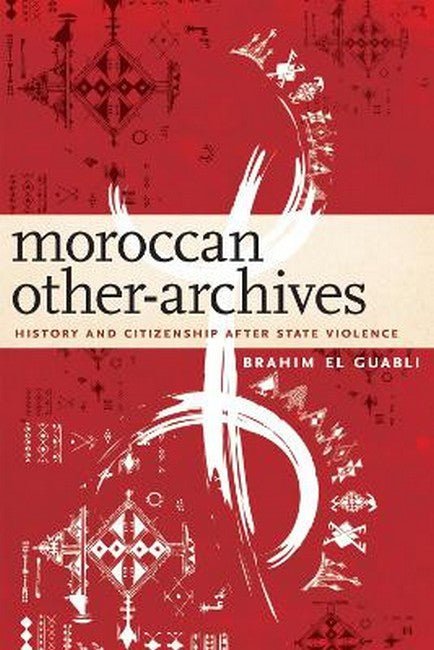Brahim El Guabli is Assistant Professor of Arabic Studies and Comparative Literature at Williams College.
Request Academic Copy
Please copy the ISBN for submitting review copy form
Description
Preface ix Note on Transliteration xiii List of Abbreviations xv Introduction 1 1. (Re)Invented Tradition and the Performance of Amazigh Other- Archives in Public Life 26 2. Emplaced Memories of Jewish- Muslim Morocco 63 3. Jewish- Muslim Intimacy and the History of a Lost Citizenship 89 4. Making Tazmamart a Transnational Other- Archive 115 5. Other- Archives Transform Moroccan Historiography 150 Conclusion 177 Acknowledgments 189 Notes 193 Bibliography 253 Index 281
This fascinating and ambitious book by Brahim El Guabli explores a Moroccan landscape of subversive and forgotten memories at the intersection of history and literature. . . It will no doubt be edifying to see if and how Moroccan historians respond to the challenges of El Guabli's unique book.-- "Research Africa Reviews" [An] impassioned and innovative book. . .-- "H-Net Reviews" Moroccan Other-Archives opens new terrain for the study of independent Morocco, and will certainly give specialists in the nation's literature, history, culture, and politics much fodder for discussion. Moreover, the project's deep engagement with questions of how history is written in the aftermath of state violence affords it a transnational bent: given the unfortunate abundance of episodes of state violence that have gone unaccounted for, the conceptual framework of other-archives has an analogical potential that is built to travel, and should.-- "Journal of North African Studies" In his new monograph, Moroccan Other-Archives: History and Citizenship After State Violence, Brahim El Guabli explores the possibilities of recovering historical narratives in the absence of a formalized archive by looking to the literary and cultural production of a society faced with multiple losses.-- "ArabLit Quarterly" El Guabli's book joins the growing field of 'archive studies' in questioning an official historiography that silences other histories not only by virtue of its methodological precepts but also by the partnership between the state apparatus and archives. As El Guabli shows, what has been written out of official archives has nevertheless left marks on unofficial memory and it is to the excavation of this other archive that his work is dedicated. The book is written in a fluid and accessible prose that can be read with ease and pleasure.---Nasrin Qader, Northwestern University Moroccan Other-Archives will be of great interest to scholars of the region and the global south, of human rights studies, comparative literature, archives and library sciences.---Susan Slyomovics, UCLA

